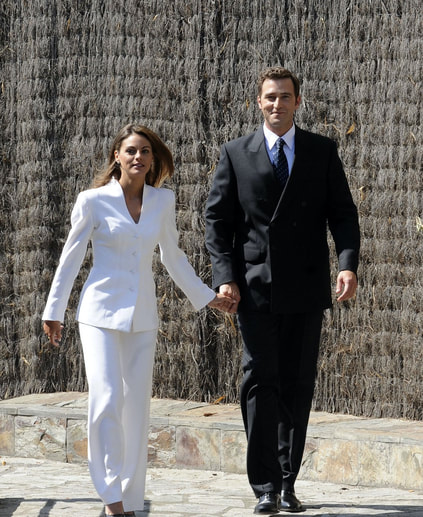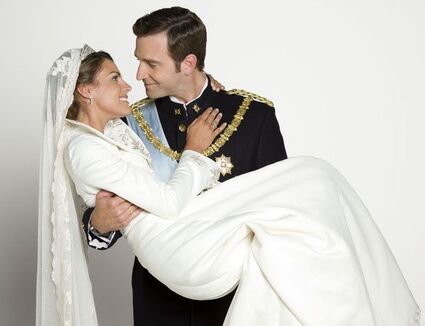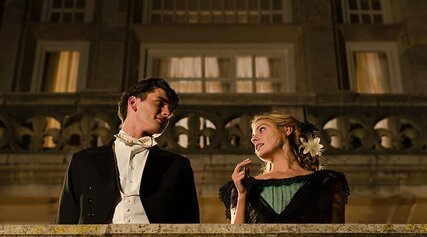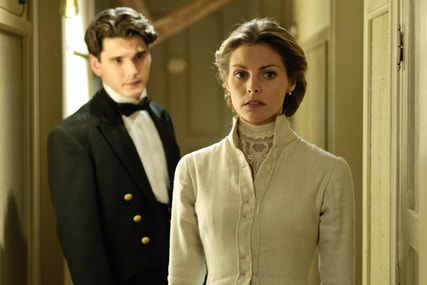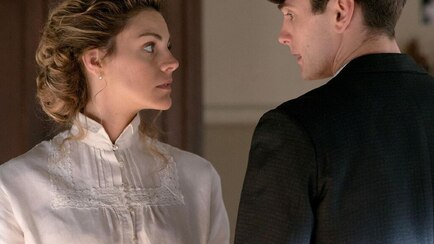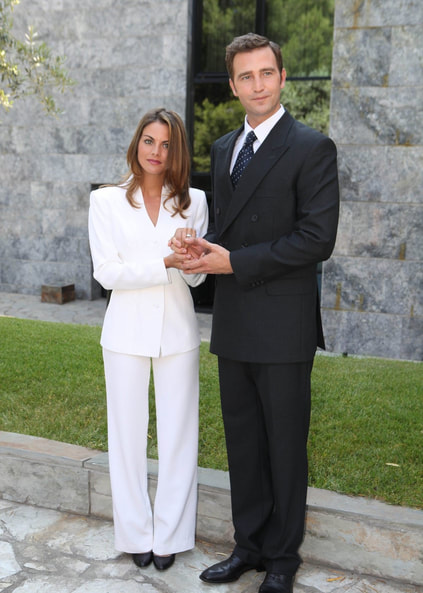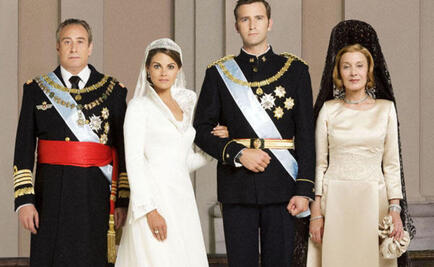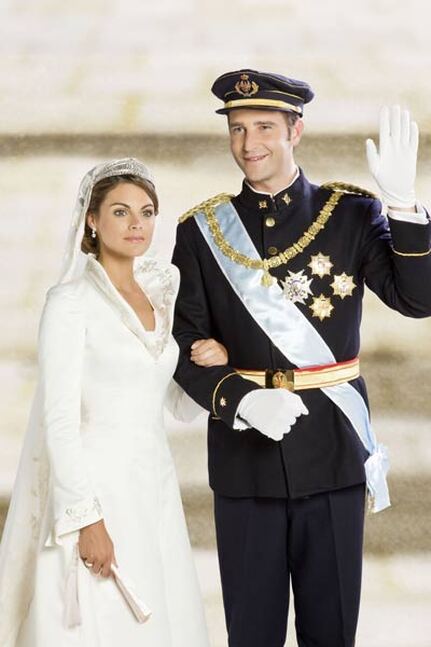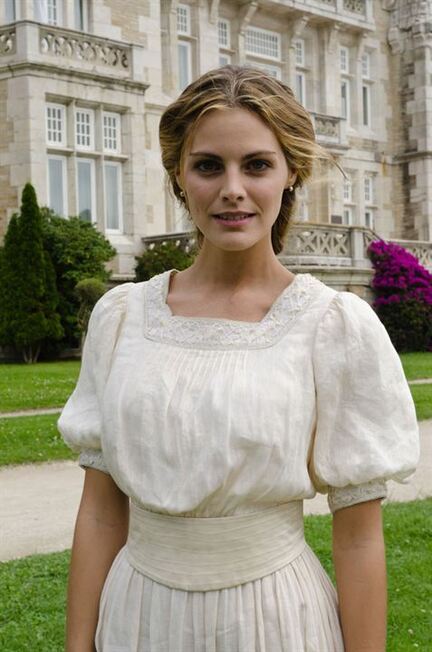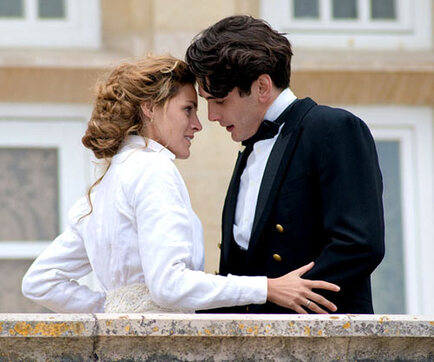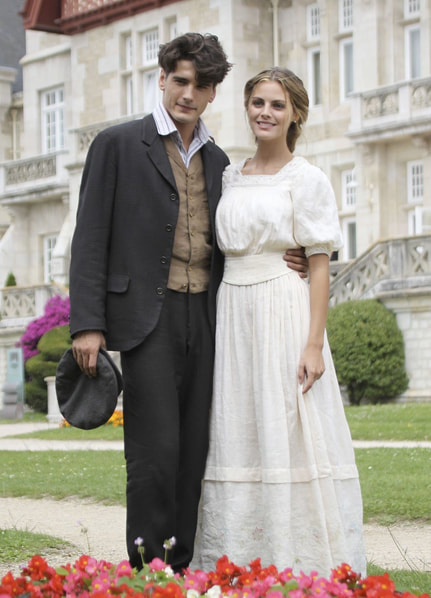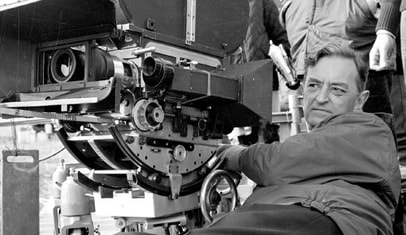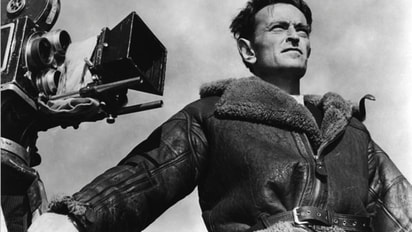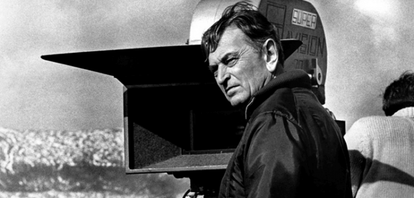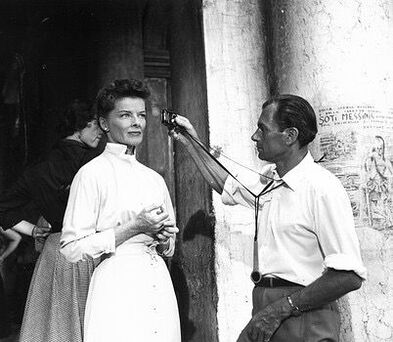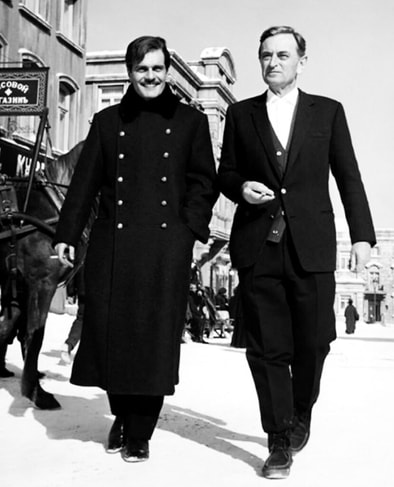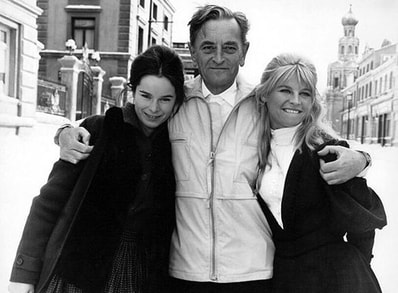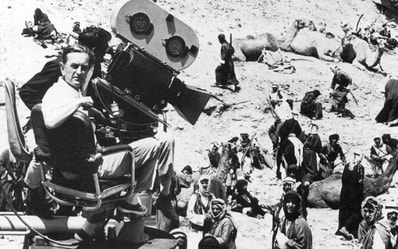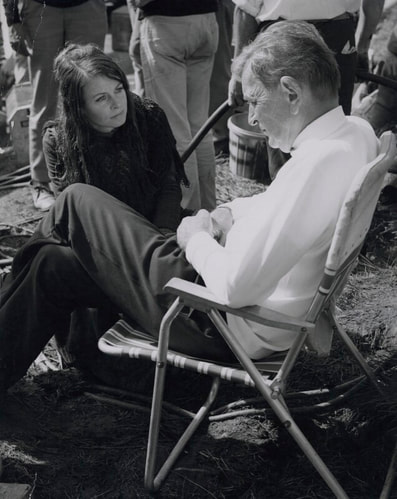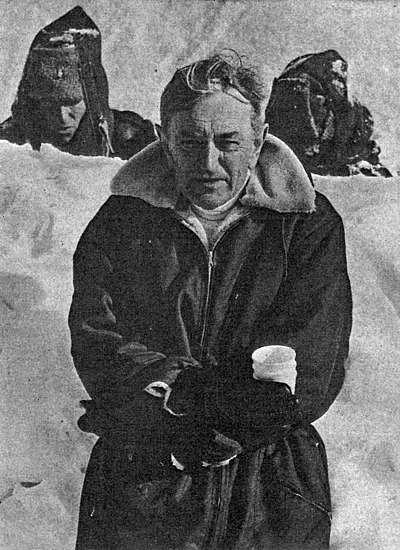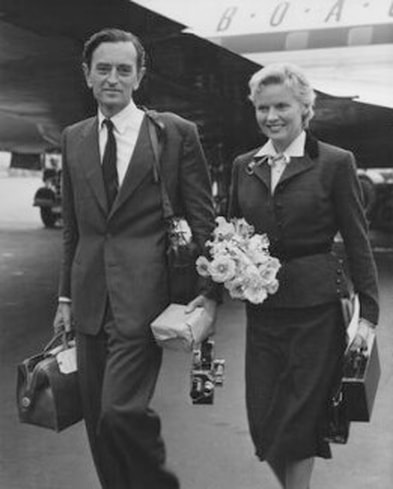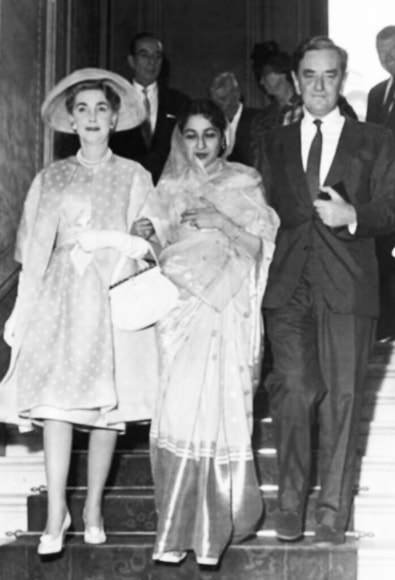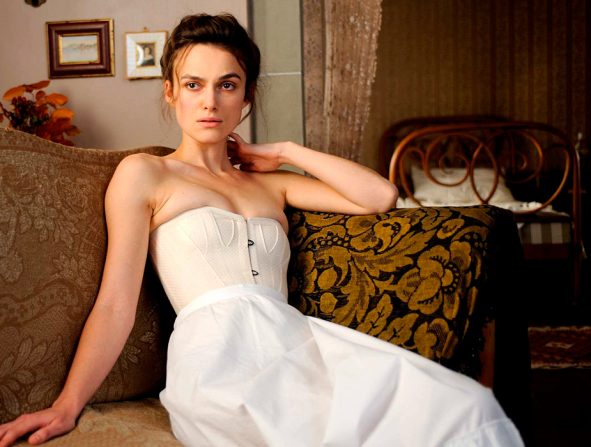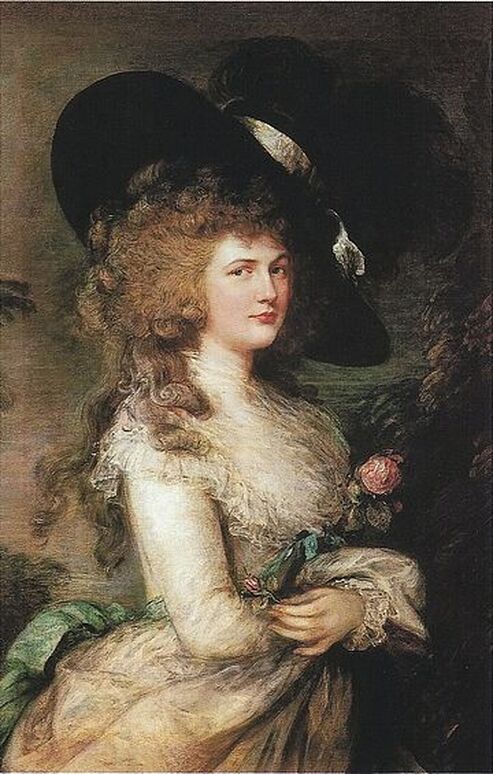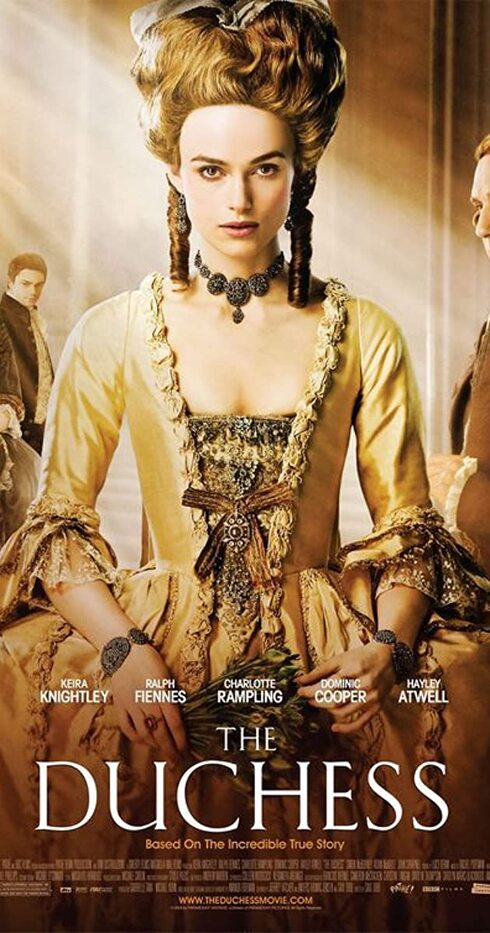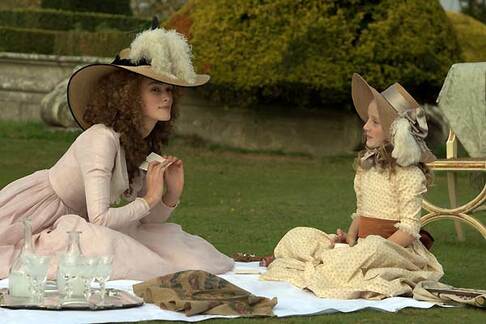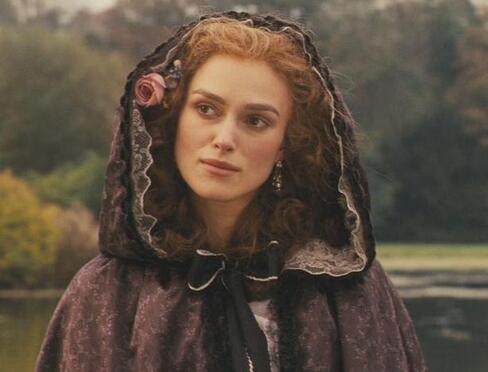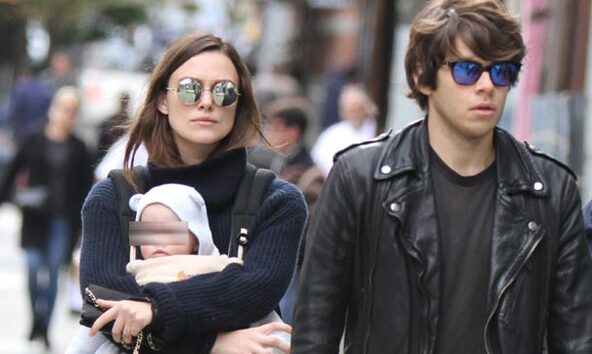ProfileAmaia Salamanca Urízar (born 28 March 1986) is a Spanish actress, best known for her role as Catalina Marcos in the Spanish version of the Colombian TV series "Sin tetas no hay paraíso" and as Alicia Alarcón in series Gran Hotel. Amaia Salamanca Urízar (Coslada, Madrid, 28 de marzo de 1986) es una actriz y modelo española conocida por su participación en series como Sin tetas no hay paraíso, Gran Hotel o SMS. También ha protagonizado diferentes películas como Fuga de Cerebros o ¡Atraco!. BiographyAmaia Salamanca was born in Madrid, Spain on 28 March 1986. Initially, she was not planning to go into acting, but in her first audition, for SMS, the television channel TV company LaSexta gave her first acting job. In SMS, she worked with other young film and television actors such as Yon González, Mario Casas and María Castro. She made a theater debut in 2009 with The Marquise of O, by Heinrich von Kleist. In 2010 she played Letizia Ortiz in the TV movie Felipe y Letizia. From 2011-2013, she starred in opposite Yon González in tv serie Gran Hotel, which became one of the most successful Spanish tv series in tv history, and often named as the Spanish Downton Abbey. She will lead the Spanish-Canadian co-production Webcam directed by Antoni Sole. Besides her work as an actress, Amaia works as a model for photo shoots, video clips and shows. In October 2020, Salamanca became an ambassador for Codorníu and the protagonist of its new campaign 'Live to celebrate'. BiografíaAmaia Salamanca nació en Los Berrocales de Jarama (Madrid) con orígenes vizcaínos. Inicialmente no pensaba dedicarse a la interpretación. Antes de conseguir su primer papel como actriz, Amaia ya había trabajado en campañas publicitarias para grandes empresas como Telecable y Movistar, como modelo de Marco Aldany en tres exposiciones e imagen de la firma Blue Image. Su primer papel como actriz lo obtuvo en 2006 al lograr ser uno de los protagonistas en la serie juvenil SMS(sin miedo a soñar). En ella encarnó durante 185 capítulos a Paula Dejardains Gómez-De Iridutia. Concluida su participación en la serie se incorporó al reparto de Sin tetas no hay paraíso como Catalina. Su historia de amor con actor Miguel Ángel Silvestre(como El Duque) dio gran popularidad a ambos. En 2009 se estrenó en la gran pantalla con la comedia Fuga de cerebros, con buenos resultados en taquilla. Ese mismo año debutó también en el teatro, en la obra La marquesa de O del escritor alemán Heinrich von Kleist. A finales de año, se emitió en Telecinco el telefilme Felipe y Letizia donde interpretaba como protagonista a Letizia Ortiz. En 2011 se unió al reparto de Gran Hotel, serie ambientada en los inicios del siglo XX para Antena 3, donde dio vida a Alicia Alarcón hasta 2013. En febrero de 2014 se incorporó al elenco de la serie de Antena 3, Velvet en la que encarnó a Bárbara de Senillosa durante tres temporadas. Esto supuso su reencuentro televisivo con el actor Miguel Ángel Silvestre(como Alberto Márquez) después de haber protagonizado Sin tetas no hay paraíso.
Tras ello, en diciembre de 2015 la actriz dejó la serie en su tercera temporada debido a que comenzaría el rodaje de otra serie para esa misma cadena, La embajada, donde interpreta desde su estreno en abril de 2016 el personaje de Fátima. La serie consiguió en su primer capítulo reunir a más de cuatro millones de telespectadores.
0 Comments
Sir David Lean CBE (25 March 1908 – 16 April 1991) was an English film director, producer, screenwriter and editor. Widely considered one of the most influential directors of all time, Lean directed the large-scale epics The Bridge on the River Kwai (1957), Lawrence of Arabia (1962), Doctor Zhivago (1965), and A Passage to India (1984). He also directed two adaptations of Charles Dickens novels, Great Expectations (1946) and Oliver Twist (1948), as well as the romantic drama Brief Encounter (1945). Originally a film editor in the early 1930s, Lean made his directorial debut with 1942's In Which We Serve, which was the first of four collaborations with Noël Coward. Beginning with Summertime in 1955, Lean began to make internationally co-produced films financed by the big Hollywood studios; in 1970, however, the critical failure of his film Ryan's Daughter led him to take a fourteen-year break from filmmaking, during which he planned a number of film projects which never came to fruition. In 1984 he had a career revival with A Passage to India, adapted from E. M. Forster's novel; it was an instant hit with critics but proved to be the last film Lean would direct. Lean's affinity for pictorialism and inventive editing techniques has led him to be lauded by directors such as Steven Spielberg, Stanley Kubrick, Martin Scorsese, and Ridley Scott. Lean was voted 9th greatest film director of all time in the British Film Institute Sight & Sound "Directors' Top Directors" poll in 2002. Nominated seven times for the Academy Award for Best Director, which he won twice for The Bridge on the River Kwai and Lawrence of Arabia, he has seven films in the British Film Institute's Top 100 British Films (with three of them being in the top five) and was awarded the AFI Life Achievement Award in 1990. BiographyDavid Lean was born on 25 March 1908 at 38 Blenheim Crescent, South Croydon, Surrey (now part of Greater London), to Francis William le Blount Lean and the former Helena Tangye. His parents were Quakers and he was a pupil at the Quaker-founded Leighton Park School in Reading. His younger brother, Edward Tangye Lean (1911–1974), founded the original Inklings literary club when a student at Oxford University. When Lean was aged ten, his uncle gave him a Brownie box camera. "You usually didn't give a boy a camera until he was 16 or 17 in those days. It was a huge compliment and I succeeded at it.' Lean printed and developed his films, and it was his 'great hobby'. Lean was a half-hearted schoolboy with a dreamy nature who was labeled a "dud" of a student. In 1923, his father deserted the family and Lean would later follow a similar path after his own first marriage and child. In the Christmas Term of 1926, Lean left school at the age of 18 and entered his father's chartered accountancy firm as an apprentice. Bored by his work, Lean spent every evening in the cinema, and in 1927, after an aunt had advised him to find a job he enjoyed, he visited Gaumont Studios where his obvious enthusiasm earned him a month's trial without pay. He was taken on as a teaboy, promoted to clapperboy, and soon rose to the position of third assistant director. By 1930 he was working as an editor on newsreels, including those of Gaumont Pictures and Movietone, while his move to feature films began with Freedom of the Seas (1934) and Escape Me Never (1935). He has also edited two film productions of two George Bernard Shaw plays, Pygmalion (1938) and Major Barbara (1941). Lean began his directing career, after editing more than two dozen features by 1942. His first work as a director was in collaboration with Noël Coward on In Which We Serve (1942), and he later adapted several of Coward's plays into successful films, including This Happy Breed (1944), Blithe Spirit (1945) and Brief Encounter (1945). The film shared Grand Prix honors at the 1946 Cannes film festival and garnered Lean his first Academy nominations for directing and screen adaptation, and Celia Johnson who played the female lead a nomination for Best Actress. It has since become a classic, one of the most highly regarded British films. Two celebrated Charles Dickens adaptations followed – Great Expectations (1946) and Oliver Twist (1948). The next film directed by Lean was The Passionate Friends (1949), an atypical Lean film, and the first of three films to feature the actress Ann Todd, who became his third wife. The last of the films with Todd, The Sound Barrier (1952), has a screenplay by the playwright Terence Rattigan and was the first of his three films for Sir Alexander Korda's London Films. Summertime (1955) marked a new departure for Lean. It was partly American financed, although again made for Korda's London Films. The film features Katharine Hepburn in the lead role as a middle-aged American woman who has a romance while on holiday in Venice. It was shot entirely on location there. Lean's films now began to become infrequent but much larger in scale and more extensively released internationally. The Bridge on the River Kwai (1957) was based on a novel by Pierre Boulle recounting the story of British and American prisoners of war trying to survive in a Japanese prison camp during the Second World War. The film stars William Holden and Alec Guinness and became the highest-grossing film of 1957 in the United States. It won seven Academy Awards, including Best Picture, Best Director, and Best Actor for Alec Guinness, who had battled with Lean to give more depth to his role as an obsessively correct British commander who is determined to build the best possible bridge for his Japanese captors in Burma. After extensive location work in the Middle East, North Africa, Spain, and elsewhere, Lean's Lawrence of Arabia was released in 1962. It recounts the life of T. E. Lawrence(played by Peter O'Toole), the British officer who is depicted in the film as uniting the squabbling Bedouin peoples of the Arab peninsula to fight in World War I and then push on for independence. French composer Maurice Jarre, on his first Lean film, created a soaring film score with a famous theme and won his first Oscar for Best Original Score. The film turned actor Peter O'Toole, playing Lawrence, into an international star, and was nominated for ten Oscars and won seven, including Best Picture and Lean's second win for Best Director. He remains the only British director to win more than one Oscar for directing. Lean had his greatest box-office success with Doctor Zhivago (1965), a romance set during the Russian Revolution. The film, based on the banned novel by Nobel Prize-winning Russian poet Boris Pasternak, tells the story of a brilliant and warm-hearted physician and poet Yuri (played by Omar Sharif) who, while seemingly happily married into the Russian aristocracy, and a father, falls in love with a beautiful abandoned young mother named Lara (played Julie Christie) and struggles to be with her in the chaos of the Bolshevik revolution and subsequent Russian Civil War. As of 2020, it is the 9th highest-grossing film of all time, adjusted for inflation. Producer Carlo Ponti used Maurice Jarre's lush romantic score to create a pop tune called "Lara's Theme", which became an international hit song with lyrics under the title "Somewhere My Love", one of cinema's most successful theme songs. The British director of photography, Freddie Young, won an Academy Award for his color cinematography. Lean's Ryan's Daughter (1970) was released after an extended period on location in Ireland. A doomed romance set against the backdrop of 1916 Ireland's struggles against the British, it is loosely based on Gustave Flaubert's Madame Bovary. The film received far fewer positive reviews than the director's previous work, being particularly savaged by the New York critics. Nonetheless, the film was a box office success, earning $31 million and making it the 8th highest-grossing film of that year. It won two Academy Awards the following year, another for cinematographer Freddie Young. The poor critical reception of the film prompted Lean to meet with the National Society of Film Critics, gathered at the Algonquin Hotel in New York, including The New Yorker's Pauline Kael, and ask them why they objected to the movie. These critics so lacerated the film for two hours to David Lean's face that the devastated Lean was put off from making films for a long time. During the last years of his life, Lean was in pre-production of a film version of Joseph Conrad's Nostromo. From 1977 until 1980, Lean and Robert Bolt worked on a film adaptation of Captain Bligh and Mr. Christian, a dramatized account by Richard Hough of the Mutiny on the Bounty. After Bolt suffered a serious stroke and was unable to continue writing, however, Lean was forced to abandon the project after overseeing casting and the construction of the $4 million Bounty replica as the director felt that Bolt's involvement would be crucial to the film's success. The film's producer, Italian mogul Dino De Laurentiis did not want to lose the millions he had already put into the project over what he thought was as insignificant a person as the director dropping out. The film was eventually released as The Bounty. Lean then embarked on a project he had pursued since 1960, a film adaptation of A Passage to India (1984), from E. M. Forster's 1924 novel of colonial conflicts in British-occupied India. Entirely shot on location in the sub-continent, this became his last completed film. He rejected a draft by Santha Rama Rau, responsible for the stage adaptation and Forster's preferred screenwriter, and wrote the script himself. In addition, Lean also edited the film with the result that his three roles in the production (writer, editor, director) were given equal status in the credits. Lean recruited long-time collaborators for the cast and crew, including Maurice Jarre (who won another Academy Award for the score), Alec Guinness in his sixth and final role for Lean, as an eccentric Hindu Brahmin, and John Box, the production designer for Dr. Zhivago. The film opened to universally enthusiastic reviews and was nominated for eleven Academy Awards and Lean himself nominated for three Academy Awards in directing, editing, and writing. His female star, an English woman played by Australian actress Judy Davis her first Academy nomination. Peggy Ashcroft, as the sensitive Mrs. Moore, won the Oscar for best supporting actress, making her, at 77, the oldest actress to win that award. He was signed on to direct a Warner Bros.-backed adaptation of J. G. Ballard's autobiographical novel Empire of the Sun. Steven Spielberg, who was brought on board as a producer for Lean, later assumed the role of director when Lean dropped out of the project; Spielberg was drawn to the idea of making the film due to his long-time admiration for Lean and his films. Empire of the Sun was released in 1987. The Nostromo project involved several writers whose work was abandoned. In the end, Lean decided to write the film himself with the assistance of Maggie Unsworth with whom he had worked on the scripts for Brief Encounter, Great Expectations, Oliver Twist, and The Passionate Friends. Nostromo had a total budget of $46 million and was six weeks away from filming at the time of Lean's death from throat cancer and interment at Putney Vale Cemetery. Nostromo was finally adapted for the small screen with an unrelated BBC television mini-series in 1997. Lean was appointed Commander of the Order of the British Empire (CBE) in 1953, and was knighted for his contributions and services to the arts in 1984. Lean received the AFI Life Achievement Award in 1990. Lean was married six times, had one son, and at least two grandchildren—from all of whom he was completely estranged—and was divorced five times. He was survived by his last wife, art dealer Sandra Cooke, the co-author (with Barry Chattington) of David Lean: An Intimate Portrait (2001),[10] as well as Peter Lean, his son from his first marriage. His six wives were:
In 1999, the British Film Institute compiled its list of the Top 100 British films; seven of Lean's films appeared on the list:
He directed more films that won the Academy Award for Best Cinematography at the Oscars than any other director, with five wins out of six nominations for Great Expectations, The Bridge on the River Kwai, Lawrence of Arabia, Doctor Zhivago and Ryan's Daughter—the last nomination being for A Passage to India. As Lean himself pointed out, his films are often admired by fellow directors as a showcase of the filmmaker's art. Lean was also notorious for his perfectionist approach to filmmaking; director Claude Chabrol stated that he and Lean were the only directors working at the time who were prepared to wait "forever" for the perfect sunset, but whereas Chabrol measured "forever" in terms of days, Lean did so in terms of months.
Steven Spielberg and Martin Scorsese in particular are fans of Lean's epic films and claim him as one of their primary influences. Spielberg and Scorsese also helped in the 1989 restoration of Lawrence of Arabia, which had been substantially altered both by the studio in theatrical release and in particular in its televised versions; the theatrical re-release greatly revived Lean's reputation. Several of the many other later twentieth century directors who have acknowledged significant influence by Lean include Stanley Kubrick, George Lucas, Spike Lee, and Sergio Leone. Keira Christina Righton, OBE (born 26 March 1985) is a British actress. She has starred in both independent films and big-budget blockbusters, and is particularly noted for her roles in period dramas. Her accolades include two Empire Awards and nominations for two Academy Awards, two British Academy Film Awards, three Golden Globe Awards, one Screen Actors Guild Award and one Laurence Olivier Award. Knightley was appointed an OBE in the 2018 Birthday Honours for services to drama and charity. Born in London to actors Will Knightley and Sharman Macdonald, Knightley obtained an agent at age six, and initially worked commercials and television films. She appeared as Sabé, Padmé Amidala's handmaiden, in science fiction blockbuster Star Wars: Episode I – The Phantom Menace (1999). Despite her work, she struggled to break through until portraying a tomboy footballer in sports film Bend It Like Beckham (2001). Knightley achieved global stardom at age 18 for portraying Elizabeth Swann in fantasy swashbuckler series Pirates of the Caribbean. In the same year, she appeared in the Christmas romantic comedy Love Actually (2003) and was labelled a promising teen star. She portrayed Elizabeth Bennet in Joe Wright's adaption of Pride & Prejudice (2005), which earned Knightley her first nominations for a Golden Globe Award for Best Actress and an Academy Award for Best Actress in a Leading Role. At age 20, she became the third-youngest Best Actress nominee. Knightley starred in a series of further period pieces, portraying a complex love interest in Atonement (2007), tastemaker Georgiana Cavendish in The Duchess (2008), and the titular socialite in Anna Karenina (2012). She then forayed into contemporary dramas, appearing as an aspiring musician in Begin Again (2013) and a medical student in Jack Ryan: Shadow Recruit (2014). Knightley returned to historical films by playing cryptoanalyst Joan Clarke in The Imitation Game (2014), earning her a second round of Academy Award and BAFTA nominations, and starred as the eponymous belle époque writer in Colette (2018) to critical acclaim. On stage, Knightley has appeared in two West End productions: The Misanthrope in 2009, which earned her an Olivier Award nomination, and The Children's Hour in 2011. She also starred as the eponymous heroine in the 2015 Broadway production of Thérèse Raquin. Knightley is known for her outspoken stance on social issues, and has worked extensively with Amnesty International, Oxfam, and Comic Relief. Knightley married musician James Righton in 2013; they have two children. BiographyKeira Christina Knightley was born on 26 March 1985 in the Teddington suburb of London, to theatre actors Will Knightley and Sharman Macdonald. Her father is English and her mother is of Scottish and Welsh ancestry. She was meant to be named "Kiera", the anglicised form of "Kira", after Kira Ivanova, whom her father admired. However, her mother misspelled the name when she went to register Knightley, writing the "e" before the "i". Macdonald worked as a playwright after her career as an actress came to an end. Knightley has an older brother, Caleb.Knightley's parents encountered substantial financial difficulties after the birth of her brother. Knightley attended Teddington School. At age six, she was diagnosed with dyslexia but by the time she was 11, with her parents' support, Knightley says, "they deemed me to have got over it sufficiently." She is still a slow reader and cannot read out loud. At age three, she expressed the desire for an agent like her parents and got one at six. Knightley performed in a number of local amateur productions, which included After Juliet, written by her mother, and United States, written by her drama teacher. She focused on art, history, and English literature while studying at Esher College, but left after a year to pursue an acting career. Her mother's friends encouraged her to go to drama school, which she declined for financial and professional reasons. Since age six, Knightley began working in commercials and small television roles. Her first on-screen appearance was in the 1993 Screen One television episode titled "Royal Celebration". After appearing in a spate of television films through the mid-to-late 1990s, Knightley landed the role of Sabé, Padmé Amidala's handmaiden and decoy, in the 1999 science fiction blockbuster Star Wars: Episode I – The Phantom Menace. Her dialogue was dubbed over by Natalie Portman, who played Padmé. Knightley was cast in the role because of her close resemblance to Portman; even the two actresses' mothers had difficulty telling their daughters apart when they were in full make-up. In her first major role, the 2001 Walt Disney Productions feature film Princess of Thieves, Knightley played the daughter of Robin Hood. In preparation for the film, she trained for several weeks in archery, fencing, and horse riding. Knightley also took on the role of Lara Antipova in the 2002 miniseries adaptation of Doctor Zhivago, to positive reviews and high ratings. Despite having appeared in over a dozen film and television roles, Knightley struggled to get a breakthrough. That changed in 2002, when she starred in Gurinder Chadha's sports comedy film Bend It Like Beckham, which was a smash hit both in the UK and in the US, grossing over $76.6 million. Knightley portrayed Jules, a tomboy football player struggling against social norms who convinces her friend to pursue the sport. Knightley and her co-star Parminder Nagra attracted international attention for their performances in the film. Knightley portrayed the role of Elizabeth Swann, in the 2003 American fantasy swashbuckler film Pirates of the Caribbean: The Curse of the Black Pearl. The film, based on the Disney theme park attraction, revolves around infamous buccaneer Jack Sparrow and blacksmith Will Turner rescuing Swann, in possession of a cursed golden medallion, from 18th-century pirates. The film opened at number one on the box office, and became one of the highest-grossing releases of the year, with worldwide revenues of $654 million. Also in 2003, Knightley appeared in Richard Curtis' Christmas-themed romantic comedy Love Actually, featuring an ensemble cast, which included her childhood idol Emma Thompson. Knightley portrays Juliet, a woman whose fiancée’s best man is secretly in love with her. Knightley believes the film's trajectory to be "extraordinary", given that its popularity resurfaced a few years after the film's release. Knightley's most successful release in 2005 was Pride & Prejudice, a period drama based on Jane Austen's novel Pride and Prejudice. Knightley, who had admired the book from a young age, said of her character, "The beauty of Elizabeth is that every woman who ever reads the book seems to recognise herself, with all her faults and imperfections." On release, the film became a huge commercial success, with total collections of around US$120 million worldwide, and received positive reviews from critics. Knightley earned Best Actress in a Leading Role nominations at the Golden Globes and the Academy Awards for her performance at age 20, becoming the third-youngest nominee for the latter. Knightley's consecutive successes came with increased media scrutiny, and she later admitted to having struggled with her mental health during this period. In 2006, she reprised her role as Elizabeth Swann in the second and third productions of the Pirates of the Caribbean series. The Pirates of the Caribbean: Dead Man's Chest, released in July 2006. With the worldwide collections of $1.066 billion, it became the biggest financial hit in Knightley's career. The third instalment in the series, Pirates of the Caribbean: At World's End, was released in May, the following year. In 2008, Knightley appeared in wartime drama The Edge of Love. The film had her play the role of Vera Phillips, a childhood friend of Welsh poet Dylan Thomas and his wife Caitlin Macnamara. Knightley wrote the script with her mother, Sharman Macdonald, with Macnamara in mind. She based her performance on Marlene Dietrich. Knightley then starred as the 18th-century English aristocrat Georgiana Cavendish, Duchess of Devonshire in Saul Dibb's period drama The Duchess (2008), based on the best-selling biographical novel, Georgiana, Duchess of Devonshire by Amanda Foreman. The film tells the story of Georgiana's rise in society as a sociopolitical tastemaker after her marriage deorientates. The script Knightley was sent was covered in "huge white ostrich feathers" and a gold ribbon. Knightley was attracted to her character's strength and status as a political influence and fashion prowess, while being inwardly vulnerable and isolated. The following year, she was nominated for a British Independent Film Award for Best Actress. Knightley made her West End debut with Martin Crimp's version of Molière's comedy The Misanthrope, staged at London's Comedy Theatre in December 2009. She portrayed Jennifer, a shallow, amorous, and vulnerable American film star who is courted by an analytical and veracious playwright. Knightley chose the role as she felt that "if I don't do theatre right now, I think I'm going to start being too terrified to do it" and described the production as an "extraordinary and incredibly fulfilling" experience. In recognition of her theatre debut, Knightley was nominated for the Laurence Olivier Award for Best Actress in a Supporting Role and an Evening Standard Award. Knightley began the new decade with three films, including Never Let Me Go, an adaptation of Kazuo Ishiguro's novel of the same name. Knightley described the script as unique, one that made the reader think. Knightley played Ruth, one of three graduates of an autocratic boarding school that discovers their fates in a dystopia. Knightley starred in a 2011 revival of The Children's Hour by Lillian Hellman at the Comedy Theatre in London. She portrayed Karen Wright, an engaged schoolteacher accused of lesbianism in 1934. Knightley's only film of 2011 was David Cronenberg's historical drama A Dangerous Method. Based on writer Christopher Hampton's 2002 stage play The Talking Cure and set on the eve of World War I, the film depicts the turbulent relationships between fledgling psychiatrist Carl Jung, his mentor Sigmund Freud and Sabina Spielrein. Knightley portrayed Spielrein, the troubled but beautiful young psychoanalyst who comes between Jung and Freud. Knightley spent four months reading and discussing her character's behavior with psychologists to prepare for the role.She appre ciated the depth and variety of her character arc, which she viewed as rare for female roles. The film premiered at the 68th Venice International Film Festival to a positive reception. In 2012 Knightley reunited with director Joe Wright to film their third production, Anna Karenina, in which she starred as the title character. She said this collaboration is the most important of her career. In 2014, Knightley played against Benedict Cumberbatch in Morten Tyldum's historical drama The Imitation Game, a film based on the life of British mathematician Alan Turing(Benedict Cumberbatch). Knightley portrayed cryptanalyst and numismatist Joan Clarke, who decrypted German intelligence codes for the British government during World War II with Turing. The Imitation Game became a critical and commercial success grossing over $233.6 million. For her performance, Knightley received her second Academy Award and BAFTA Award nominations, and third Golden Globe Award nomination, all for Best Actress in a Supporting Role. In October 2015, Knightley made her Broadway debut playing the title role in Helen Edmundson's adaptation of Émile Zola's Thérèse Raquin at Studio 54. In 2018, Knightley starred in the biographical drama Colette as the titular French author. The film depicts Colette's social ascent in belle époque society through her provocative novels, but is exploited by her husband, who plagiarizes her work. The film, released at the Sundance Film Festival, was critically successful, with Knightley's performance receiving acclaim. Despite multiple successful films and award nominations, the criticism affected her, and Knightley felt that she "didn't know [her] trade." Media scrutiny decreased as her career progressed, and she spaces out her public appearances to maintain attention on her films. Beginning in the 2010s, Knightley regained confidence in her abilities, and by the release of Colette (2018), she felt she had learned her craft and mentally occupied a "good place where I feel pretty confident about what I can do". Knightley has been widely recognized for her extenstive repertoire of period dramas throughout her career and is reputed for her signature "strong female lead" parts. She has been compared to actresses Katharine Hepburn, Greta Garbo, Audrey Hepburn, and Nicole Kidman. In a 2004 BBC poll, Knightleywas named among the most influential people in British culture. She has been included several times on FHM's "100 Sexiest Women in the World" list, making her first appearance in 2004 and topping the list in 2006; she was included in every subsequent issue until 2009. She was part of the American editions of the list from 2004 to 2006, and was also placed ninth on the Maxim Hot 100 list in 2006. Knightley is the face of an Amnesty International campaign to support human rights, marking the 60th anniversary of the United Nations Universal Declaration of Human Rights. She is also involved in various other charity works. Knightley was the celebrity face for the luxury goods brands like Aspres, Shiatzy Chen, Lux haircare products, Chanel's perfume Coco Mademoiselle, and has endorsed Chanel Fine Jewellery's collection Coco Crush. In 2008, Knightley was the highest-earning British Hollywood star according to the Forbes Celebrity 100 list and was named amongst the most bankable actors in 2009. Knightley began a relationship with musician James Righton in February 2011. They were married on 4 May 2013 in Mazan, France. The couple have two daughters, Edie, born in May 2015, and Delilah, born in September 2019. The family live in Canonbury, London.
|
Categories
All
Archives
December 2023
|
